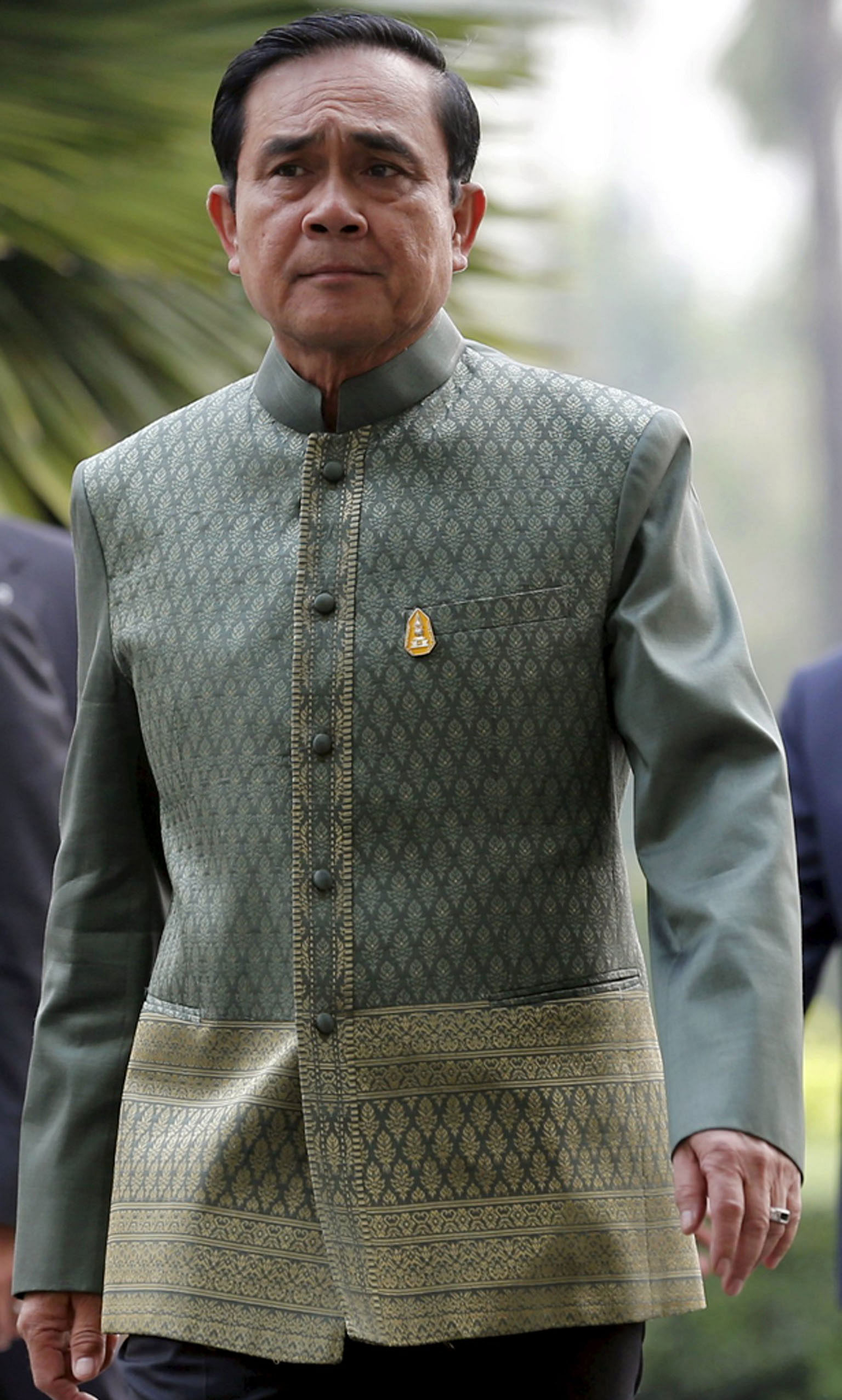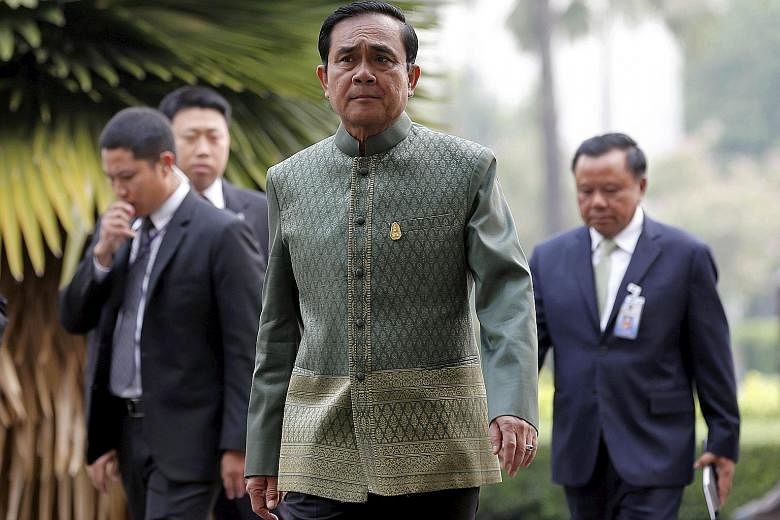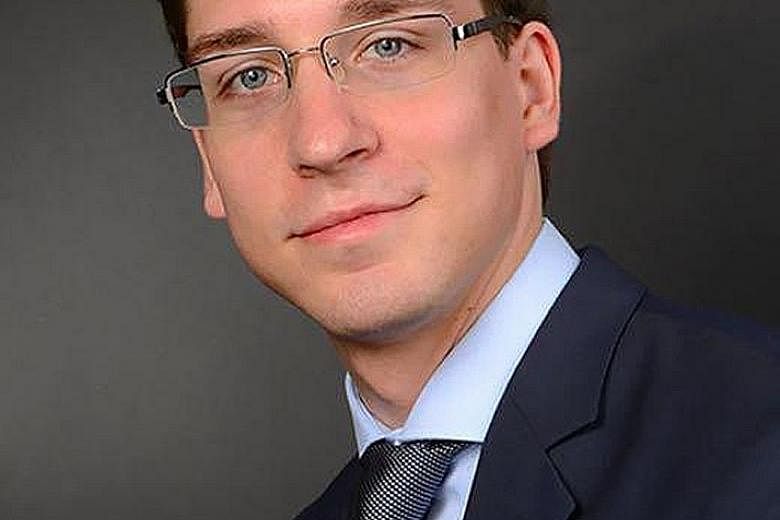Shunned by allies since its May 2014 coup, facing mounting political resistance at home, and battling economic headwinds, the Thai military junta has few options that could help patch its wafer-thin political legitimacy.
Fortunately for Prime Minister Prayut Chan-o-cha's government, help could soon arrive from an equally isolated country - Russia.
While the United States and China compete for influence throughout the Asia-Pacific, Russia is seeking to expand its clout in the region to counterbalance its decreasing influence in Western circles. Moscow has thus reached out across East and South-east Asia to improve economic ties with Asean and Apec members, effectively executing its own "pivot to Asia".
As part of this strategy, Russia was quick in extending its hand to Thailand after Thai-US relations began to cool following the coup. High-ranking bilateral visits and agreements between the two countries have become more numerous over the past two years. Russian Prime Minister Dmitry Medvedev visited Thailand in April last year, marking the first time in 25 years that a Russian premier had set foot in the country.
As recently as this February, Thai Defence Minister Prawit Wongsuwan and Deputy PM Somkid Jatusripitak visited Moscow, with PM Prayut scheduled for a follow-up visit to St Petersburg and an unprecedented Russia-Asean summit in Sochi in May. Russia's Asean campaign for hearts and minds is in full swing.

For the increasingly isolated generals running the show in Bangkok, Russia's open-arms policy offers a boost for a regime desperate for positive international headlines. PM Prayut, a former general, seems to consider Russia an alternative political model to the Western liberal democratic system, one whose strict societal control and authoritarian leadership fit more closely with his style of governance.
On more than one occasion, both the European Union and the United States have expressed their displeasure with the military's rule; the row between Thailand's leadership and EU officials grew especially serious after a 2015 invitation to former prime minister Yingluck Shinawatra to speak at the European Parliament (about the state of the Thai democracy) was blocked by the junta. Russia's backing offers the Thai leadership greater leverage over the West as well as increased international recognition of its rule.
In addition to the political benefits, Russia offers Thailand a means of decreasing its dependence on Western markets. At the time of the 2014 coup, Thailand and the EU were slated to sign a landmark free trade agreement, which has since been suspended. The EU Commission is also expected to make a decision on banning all Thai fish imports, an industry worth US$3 billion (S$4 billion) in 2014.
Thailand could therefore become the second South-east Asian signatory of Russia's Eurasian Union Free Trade Agreement, after Vietnam. The two countries have set a trade target of US$10 billion in the near future, representing a fivefold increase over 2014 levels.
The sale of military equipment has been high on the agenda as well; although few details are known, bilateral discussions involved the possible purchase of Be-200 amphibious aircraft and T-90 tanks. The presence of top executives from major Russian companies suggests that a number of economic and trade-related deals will be finalised during PM Prayut's May visit.
JUNTA'S MANY PROBLEMS
However, even sheltered under Russia's wing, Thailand's future remains uncertain. In large part, the country's murky outlook can be blamed on the junta's haphazard policies. Human rights abuses have cost the junta; in the aftermath of the coup, the US halted US$4.7 million of financial assistance to Thailand and put joint programmes on hold.
The most criticised aspect of the junta's rule revolves around its reluctance to allow a return to a civilian government. With 88-year-old King Bhumibol Adulyadej in poor health, the junta will do whatever it takes to make sure the generals will have the final say in the upcoming succession.
The ongoing constitutional project is a case in point: the junta's recently unveiled draft Constitution envisions an Upper House whose members are largely appointed by the military. Effectively, this Constitution would allow the military to hold on to power virtually indefinitely in the name of national security. Former prime minister Thaksin Shinawatra - ousted in a 2006 coup - has been exceptionally outspoken on the matter, calling the draft Constitution "a charade".
It remains to be seen how reliable a partner Moscow will turn out to be and whether Bangkok can truly benefit from improved bilateral ties, given Russia's own precarious position on the world stage. While an alliance forged between two politically fragile and isolated countries does not sound particularly appealing at the moment, it is likely to remain Thailand's best strategic choice for as long as military rule continues.
- The writer is an independent researcher on Asian military and international affairs based in Taiwan. He was previously a researcher at the Centre for Strategic and International Studies in Washington.
- SEA View is a weekly column on South-east Asian affairs.


